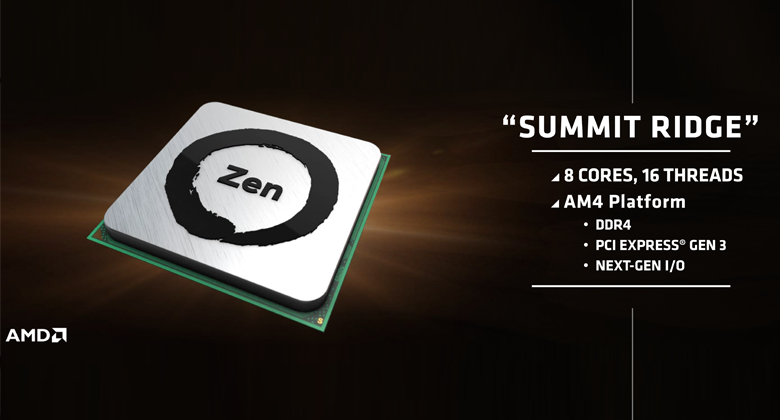It looks like the computer processor battlefield’s about to get muddy again as AMD recently teased its hotly anticipated Zen processor in a San Francisco event. The high-performance soon-to-be poster child was reported to have a 40 percent generational improvement in instructions per clock, hopefully enough to make the scene exciting again.
Specifically, AMD demonstrated an 8-core, 16-thread Summit Ridge desktop processor outperforming a similarly configured and clocked 8-core, 16-thread Intel Broadwell-E processor in a multi-threaded Blender rendering software test. The company’s upcoming 32-core, 64-thread Zen server monster code named “Naples” was also publicly trialed during the same event.
“The performance and efficiency of our Zen core showcases AMD at its best,” said Dr. Lisa Su, president and CEO of AMD. “Over the last four years we have made significant investments to develop a high-performance, multi-generation CPU road map that will power leadership products. Customer excitement for Zen continues to grow as we make significant progress towards the launch of new products that will span from the data center to high-end PCs.”
AMD designed Zen from scratch to increase performance, throughput, and efficiency, in addition to being the next foundation for AMD’s upcoming products. The architecture also features a new cache hierarchy, improved branch prediction, and simultaneous multithreading (SMT) in order to adequately scale through a variety of applications, from mobile, to desktop gaming, to server requirements.
“An engineer may get one chance in their career to work on a project of this size and scope, and maybe never one with as much potential to impact the future as much as Zen,” said Mark Papermaster, senior vice president and chief technology officer at AMD. “With Zen we aim to do what many never thought possible—deliver a 40 percent generational improvement in instructions per clock while maintaining power requirements in line with our previous generation technology.”
“AMD invested where it counts, with an x86 core that can scale from PCs to high-performance servers,” said Linley Gwennap, principal analyst at Linley Group. “Consumers today expect to get the most out of their systems to create transformative experiences. The versatile design of Zen delivers highly-efficient performance that should provide increased computing capabilities across the spectrum—from devices to cloud computing.”
The Summit Ridge processors will be the first Zen-based products out of AMD’s gates. These will use the AMD A4 socket that is compatible with 7th generation AMD A-Series processors. The A4 socket also comes with its own dedicated PCIe lanes for better data throughput, as well as support for DDR4 memory, PCIe Gen 3, USB 3.1 Gen2 10 Gbps, NVMe, and SATA Express standards.
